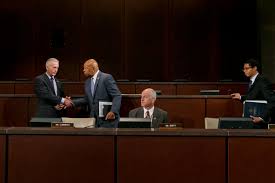Benghazi Panel Leaves Sparring to Others
< < Go Back
Lawmakers Are Investigating 2012 Attacks on U.S. Embassy.
The special House committee on Benghazi seemed determined to prove on Wednesday that it would not be the bickering, partisan panel that many expected. But the outside political class did not get the memo.
Behind-the-scenes maneuvering from the left and the right surrounding the committee’s restrained debut hearing offered an early glimpse of how the 2012 attacks on the United States diplomatic compound in Libya — which left four Americans dead, including Ambassador J. Christopher Stevens — would play out as a divisive issue if Hillary Rodham Clinton runs for president in 2016.
On the Democratic side, a network of outside groups mobilized to defend Mrs. Clinton, who was secretary of state during the attacks, against charges that she mishandled the assault. The episode has dogged Mrs. Clinton since she left the State Department in February 2013 and as she contemplates another run for the White House.
For their part, Republicans said they were determined to make sure that Mrs. Clinton remained inextricably tied to the Benghazi attacks, which she has called her “biggest regret” in her four years at the State Department.
The Republican National Committee sent out a six-page research document on Wednesday morning offering what it described as Mrs. Clinton’s vulnerabilities, including the State Department’s denial of requests for additional security at the Libya compound and reports that found the attacks were preventable.
The panel itself had a sleepy start. Representative Trey Gowdy, Republican of South Carolina, the committee’s chairman and a former prosecutor known for his fiery (and occasionally teary) orations, began by acknowledging that some of his Democratic colleagues “question the need for this committee.” Then he vowed to honor the four Americans killed by keeping an open mind “in pursuit of the facts and justice, no matter where that journey may take us.”
More From The New York Times:




